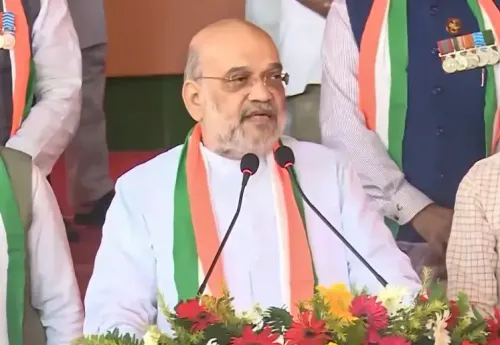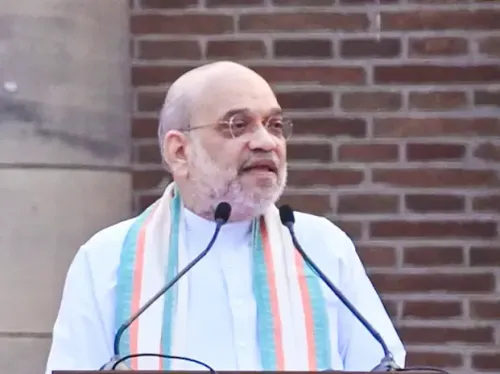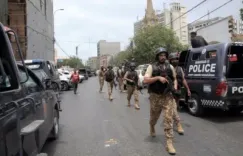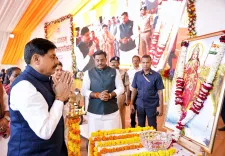Why Did the SC Postpone the Bail Hearings for Umar Khalid and Sharjeel Imam?
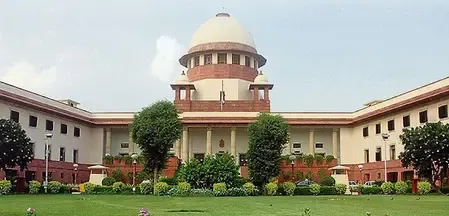
Synopsis
Key Takeaways
- Supreme Court adjourns bail hearings for key accused.
- Accusations involve 2020 Delhi riots conspiracy.
- Evidence suggests inflammatory speeches played a role.
- Prosecution claims involvement of funding and coded language.
- The case continues to attract significant public interest.
New Delhi, Sep 19 (NationPress) The Supreme Court has postponed the hearings on the bail applications of Sharjeel Imam, Umar Khalid, Meeran Haider, and Gulfisha Fatima, all implicated in the 2020 Delhi riots conspiracy case, and charged under the Unlawful Activities (Prevention) Act (UAPA).
A panel consisting of Justices Aravind Kumar and Manmohan has rescheduled the hearing for Monday, September 22, at the request of the petitioners.
During the previous session, the Justice Kumar-led panel mentioned challenges in addressing the batch of special leave petitions (SLPs) and ordered that the cases be scheduled for today, September 19.
Previously, the Delhi High Court denied bail to several activists and student leaders linked to the alleged broader conspiracy surrounding the North-East Delhi riots. On September 2, a Bench comprising Justices Shalinder Kaur and Navin Chawla concluded that there was adequate evidence suggesting that Imam and Khalid orchestrated the conspiracy.
The Justice Kaur-led Bench highlighted that Khalid and Imam delivered provocative speeches on February 24, 2020, coinciding with then-US President Donald Trump's State visit, which the prosecution argues was intentionally timed to incite riots on February 23-24 and attract global attention.
"The alleged inflammatory and provocative speeches made by the appellants, when evaluated in their entirety, prima facie indicate their involvement in the alleged conspiracy," remarked the Delhi High Court.
Concerning Meeran Haider, it was noted that she allegedly funded the Alumni Association of Jamia Millia Islamia (AAJMI), where meetings of the JCC (JMI Coordination Committee) were conducted.
The Justice Kaur-led panel further pointed out that the prosecution's claim about the investigation against Haider being completed did not represent a significant change in circumstances to warrant bail, given the ongoing witness examinations and the seriousness of the alleged conspiracy.
The prosecution asserts that Gulfisha Fatima employed coded language to direct protesters in executing actions that furthered the alleged conspiracy and received funding for such activities.
The February 2020 Delhi riots, which erupted amid protests against the Citizenship Amendment Act (CAA) and the National Register of Citizens (NRC), resulted in 53 fatalities and over 700 injuries.


